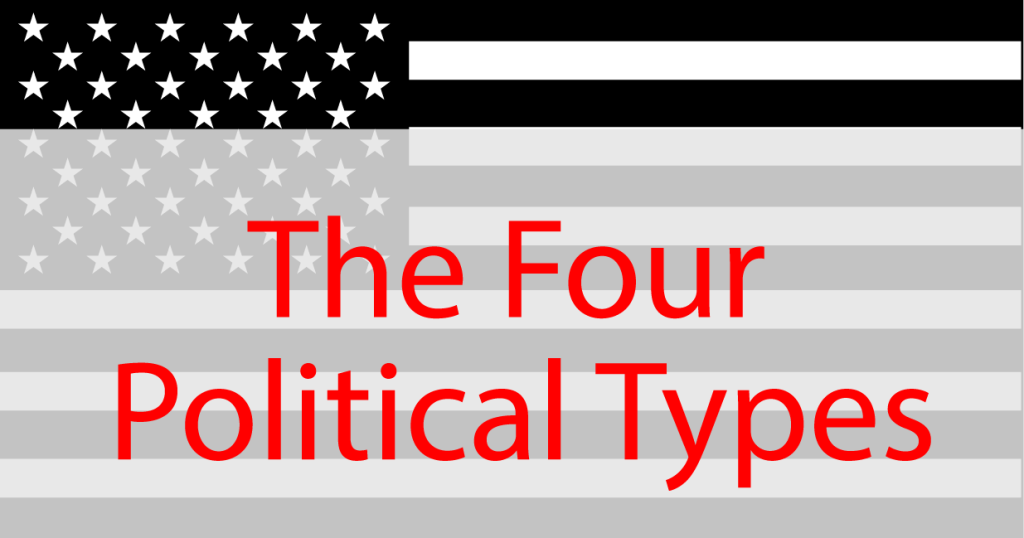OVERVIEW OF THE FOUR POLITICAL TYPES ©
- The first of the four political types that we hold make up all societies is included in our target audience: The Philosopher type. The philosopher is characterized by Plato as not being interested in gaining power or wealth for its own sake. He cares for the whole society. A political problem results from this. The type that cares about the common good does not want to be involved in governing. The problem is spelled out in The Republic, where Plato uses the term “wages” to refer to the incentive of engagement in ruling. Of the philosopher type, Plato says:
“It is for just this reason, my dear Thrasymachus, that I said a moment ago that no one willingly chooses to rule and get mixed up in straightening out other people’s troubles; but he asks for wages, because the man who is to do anything fine by art never does what is best for himself nor does he command it, insofar as he is commanding by art, but rather what is best for the man who is ruled. It is for just this reason, as it seems, that there must be wages for those who are going to be willing to rule—either money, or honor, or a penalty if he should not rule.” Republic 346dLater, Plato spells out the practical problem that results over time from the fact that the type who wants to rule is not motivated by caring for the whole society, but merely for his own self-aggrandizement. He says: “Unless,” I said, “the philosophers rule as kings or those now called kings and chiefs genuinely and adequately philosophize, and political power and philosophy coincide in the same place, while the many natures now making their way to either apart from the other are by necessity excluded, there is no rest from ills for the cities, my dear Glaucon, nor I think for human kind, nor will the regime we have now described in speech ever come forth from nature, insofar as possible, and see the light of the sun… For it is hard to see that in no other city would there be private or public happiness.” Line 473 Republic.
- The second of the types is the Average Citizen. Their motive is to get basic needs and desires met, namely a certain degree of economic security and comfort as well as some degree of status relative to their peer group.
- The third type is called the fanatic, zealot. The common media term is ‘extremist’. In the 21st century, we also include the terrorist. Their motive is to realize a particular favored moral ideal by force if necessary and to organize society around this one moral absolute.
- The fourth type is the Strong Man. This type is motivated by a desire to attain wealth and power that puts them at the top of the social, political and economic hierarchy. Their motive once this goal is attained is to prevent any relative movement down this hierarchy.

